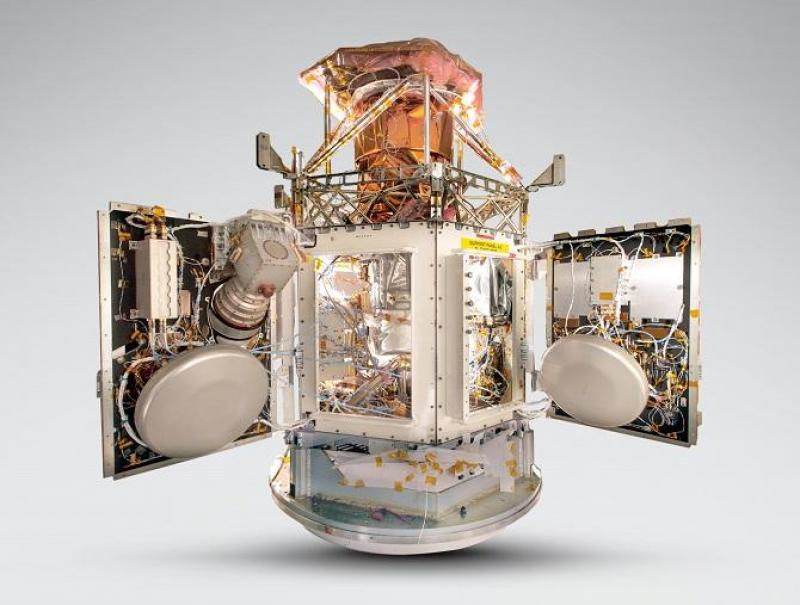
Rafael Advanced Defense Systems announced today that it has completed the first series of tests of the "Venus" satellite's electric propulsion system in its orbit in space after the launch. The satelit rwas launched duriing a joint venture between the Israel Space Agency and the French Space Agency, and the first electric propulsion system of its kind. It was developed by Rafael, Israel's only manufacturer of electric propulsion systems for satellites.
Rafael also noted that it has conducted a final system test, and that the system can now be declared operational. The tests were carried out from the "Technological Mission Center" located inside Rafael facilities in the north of Israel. Later, additional experiments are planned in t he satelite and performance will be performed for the space propulsion system.
Venus has two missions: one scientific - under the responsibility of the French Space Agency, and the other a technological one - under the responsibility of the Israeli Space Agency, whose main purpose is to demonstrate the ability to improve photographic missions by using electric propulsion.
The Israeli Space Agency assigned this task to Rafael, which developed and manufactured the system, and, as stated, announced the successful completion of the series of experiments and tests of this system in space. Rafael representatives will present the subject tomorrow at the Space Conference of the Ministry of Science in cooperation with the Yuval Ne'eman Workshop at Tel Aviv University.
The advantages of electric propulsion in space are many and varied, allowing significantly improved performance compared to traditional chemical propulsion. Electric propulsion reduces the weight of the satellite significantly, and is five times more efficient than traditional chemical propulsion in terms of fuel consumption or satellite life. Alternatively, it is possible to save on the high launch costs, or to take advantage of the weight saved to increase the satellite drones.
Jacob Hershkovitz, head of the Venus project at Rafael, says: "In recent years there has been a clear trend in the world of transition from a traditional chemical drive to electric propulsion, thanks to the improved performance achieved with electric propulsion: track accuracy, satellite life, fuel savings, etc. Rafael is that we are a systems house: we do not focus solely on one type of component, but rather develop and manufacture all the components of the system: fuel tanks, engines, valves, system integration, testing, refueling before launch etc. All this is done using raw materials and suppliers, white".
Avi Blassberger, director of the Israeli space agency at the Ministry of Science: "In recent years, the use of low-altitude satellites has been increasing, and the success of the Venus engine will enable the use of low-orbiting satellites in these satellites, extend the life of the satellites and improve their performance."
Rafael has been engaged in the development of space products for the past 30 years and has been a major partner in the Israeli space program since its first day. The development and production of space electric propulsion systems in Rafael was born out of a future vision and analysis of trends in the development of the civilian space market.
Rafael also cooperates with companies abroad in the development of additional electric propulsion products.There are many customers in the world showing great interest in the advanced electric propulsion systems developed by Rafael.The success of the Venus satellite is expected to increase the interest in these products. Which is currently being developed and manufactured by Rafael in Israel, currently contains more than 70 satellites launched successfully in space.
Articles Archive
Top Categories
ABOUT IFI TODAY

Lorem ipsum dolor sit amet, consectetur adipisicing elit, sed do eiusmod tempor incididunt ut labore et dolore magna aliqua. Ut enim ad minim veniam, quis nostrud exercitation ullamco laboris nisi ut aliquip ex ea commodo consequat. Duis aute irure dolor in reprehenderit in voluptate velit esse cillum


Comments